Science Visualized
-
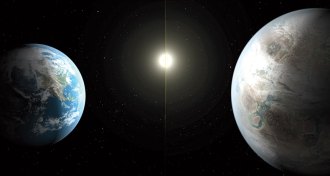 Planetary Science
Planetary ScienceNew exoplanet: Big Earth or small Neptune?
NASA’s Kepler spacecraft has discovered a “cousin” of Earth 1,400 light-years away. But even though the new planet bears many similarities to Earth, experts say much about it remains a mystery.
By Andrew Grant -
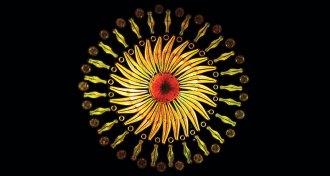 Ecosystems
EcosystemsEncased algae create kaleidoscope of color
The skeletons of diatoms, algae that produce oxygen but also form toxic blooms, can create beautiful microscopic designs.
-
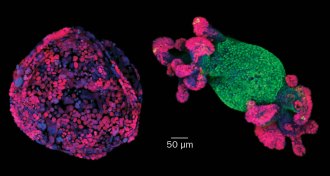 Genetics
GeneticsGenetic switch wipes out tumors in mice
By switching on a single gene, researchers turned cancer cells in mice back into normal intestinal tissue.
By Meghan Rosen -
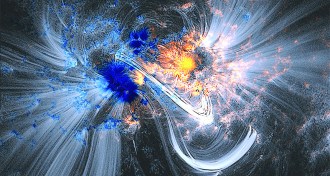 Astronomy
AstronomyA loopy look at sunspots
In visible light, sunspots look like dark blotches that often expel flares of searing plasma. NASA’s Solar Dynamics Observatory offers a different view.
-
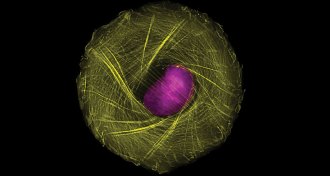 Life
LifeTwisty chains of proteins keep cells oriented
The counterclockwise twist of protein fibers jutting out from the edge of human cells allow the cells to distinguish right from left.
-
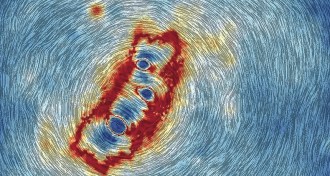 Astronomy
AstronomyCosmic superlens gives telescopes a boost
A map of galaxy cluster Abell 2744 unveils how gravity magnifies and smears images of far more distant galaxies.
-
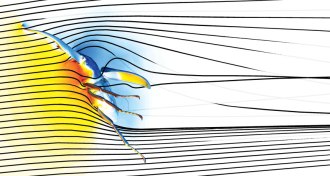 Life
LifeMale stag beetles face weighty problem for flight
Male stag beetles need enormous mandibles to fend off other males and find a mate, but computer simulations show that the giant jaws make running and flying very difficult.
By Susan Milius -
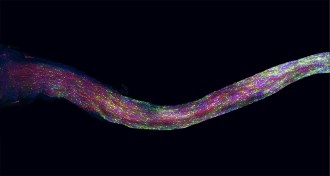 Genetics
Genetics‘Brainbow’ illuminates cellular connections
A mouse’s optic nerve fluoresces in a rainbow of colors. The image offers a detailed look at nerve-protector cells called oligodendrocytes.
-
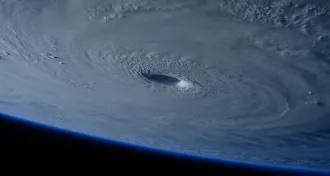 Climate
ClimateMonster storm dominates view from space station
A stunning photograph from the International Space Station captures the size and power of Typhoon Maysak, which clamored through the Western Pacific.
-
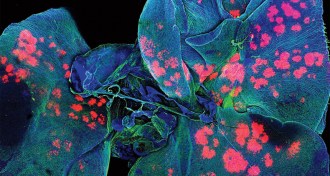 Health & Medicine
Health & MedicinePink blobs of hope in cancer-targeting quest
Cancer drugs coated with plastic can reach a mouse’s lungs for targeted delivery, but steering the capsules to the right spots can be a challenge.
-
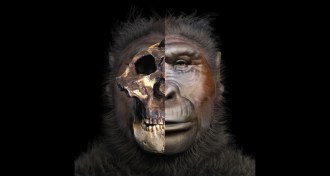 Anthropology
AnthropologyHow to reconstruct the face of an extinct human ancestor
3-D designer reconstructs portraits of ancestors for the human family album.
By Erin Wayman -
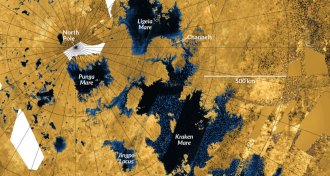 Planetary Science
Planetary ScienceTitan’s vast seas may drive methane cycle
A phenomenon similar to Earth’s hydrological cycle on Saturn’s largest moon Titan may create different lake compositions, similar to the salinity difference between the Black Sea and the Mediterranean.